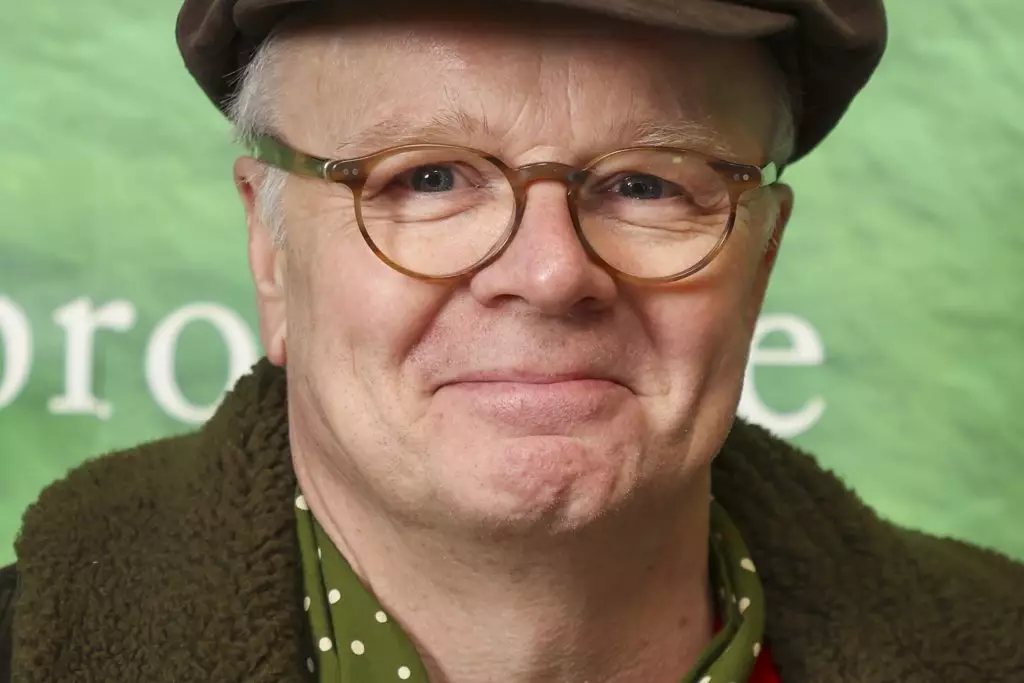In the dynamic world of television, the blend of suspense, drama, and character exploration has increasingly captured audience attention. Channel 5’s upcoming production, ‘Catch You Later,’ starring Jason Watkins, provides a fresh take on the cat-and-mouse thriller concept. This narrative not only marks Watkins’ return to the network but also highlights the psychological aspects of crime, intertwined with the haunting reminiscences that linger in a detective’s mind long after the case is closed.
Watkins, renowned for his multifaceted portrayals—most notably as Harold Wilson in the acclaimed series ‘The Crown’—takes on the role of Huw Miller, a detective grappling with the shadows of a haunting past. His character is portrayed as a complex individual who may struggle with the emotional toll that comes from a case left unsolved and the impending retirement that looms ahead. The storyline provokes the audience to ponder the psychological impact of unresolved cases on law enforcement personnel and the fine line between closure and obsession.
The narrative unfolds as Huw tries to extricate himself from a life riddled with the remnants of a gruesome investigation involving a sadistic stalker who terrorized his community. The return of this traumatic history is catalyzed by the arrival of a new neighbor, Patrick Harbottle, played by Robson Green, who ominously echoes the stalker’s taunt, “catch you later.” This twist creates a palpable tension that runs throughout the narrative, engaging viewers and keeping them guessing about Harbottle’s true nature.
Watkins’ portrayal promises a depth of emotion that could resonate with audiences who have experienced the weight of past traumas. The psychological exploration of Huw Miller not only serves the thriller’s central premise but also elevates the narrative into a more profound commentary on human resilience and vulnerability. The interplay between Huw and Patrick creates a captivating dynamic that could steer the story toward an introspective journey as much as an external confrontation.
Channel 5 continues to establish itself as a platform for gripping dramas, having previously partnered with Watkins in another thriller, ‘Coma.’ The reunion signifies trust in Watkins’ potential to captivate viewers, and it raises expectations for the forthcoming series. Clapperboard Studios, known for their penchant for quality content, takes the reins in production, ensuring a polished final product that may entice both seasoned ardent thrill-seekers and newcomers to the genre.
The impending release of ‘Catch You Later’ reflects a growing trend in scripted television toward deeper character studies while maintaining suspense. Such narratives provide ample opportunity for viewers to connect with characters on a visceral level, ultimately investing them in their journeys. As different platforms vie for the audience’s attention with competitive content, unique offerings that combine strong storytelling with relatable human experiences could potentially set Channel 5 apart.
The emergence of new narratives like ‘Catch You Later’ also aligns with significant shifts in the broader entertainment industry, as companies such as Mediawan diversify their content strategies by exploring monetization across a range of platforms, including podcasts and immersive experiences. This evolution of content consumption reflects the industry’s recognition of the necessity to adapt to contemporary audiences’ desires for multi-angled storytelling.
Jason Watkins’ return to Channel 5 in ‘Catch You Later’ could signify not just another television thriller but also an indication of an industry ripe for character exploration and the tangled webs our minds can weave. As Huw Miller’s journey unfolds within this thrilling framework, viewers may find themselves questioning their understanding of justice, closure, and the very nature of reality as influenced by past experiences.
‘Catch You Later’ promises more than just suspense; it conveys a poignant narrative about a man at the crossroads of his past and future, challenging the audience to reflect on their own interpretations of memory and the shadows that inevitably linger.


Leave a Reply